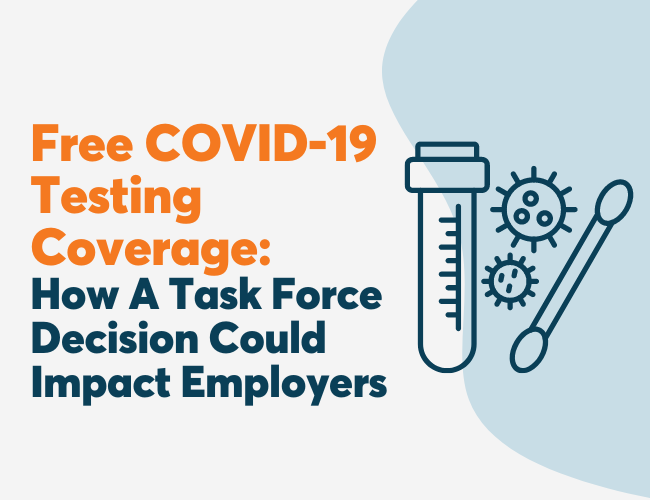On March 8, the CDC released its first set of guidance for adults that have received the COVID-19 vaccine. A year after the first cases were reported in the US, over 93 million adults have received their first dose and over 53 million are fully vaccinated. Additionally, almost all states are making plans to expand eligibility to all adults by May 1. Many are hopeful that herd immunity can be reached by the summer if the current pace of distribution continues. Employers will want to keep in mind how this will influence work environments, including the impact on remote and hybrid work options.
While the vaccines offer optimism, there are still many that are either not yet eligible or have chosen not to be inoculated. Employers need to remain diligent when it comes to health and safety precautions like mask wearing, social distancing, and health screening for these employees. Those employees that exhibit symptoms or test positive still need to quarantine. For those that have been vaccinated, working without masks or within small groups without social distancing is now a possibility. This brings an encouraging glimpse of normalcy to many US employers.
When Employees Opt Out
As eligibility continues to expand, employers will likely find that not all employees are interested in receiving the vaccination. Companies that want to require that their employees receive the vaccine need to proceed carefully. Jonathan Orleans, an employment attorney at the law firm Pullman and Comley, offers some guidance on how these employers may want to proceed. While employers can mandate vaccination and ask to see proof of their vaccination status, they must also allow “reasonable accommodation” requirements due to an individual’s medical or religious reasons. Importantly, employers can also not inquire as to why an employee is declining the vaccine. “Such inquiries may elicit protected medical information, so they should be conducted under conditions that assure the employee that such information will be kept confidential,” Orleans explained.
However, employers might not want to mandate the vaccine outright—and not just because of the potential legal considerations. From a social standpoint, a mandate could negatively impact company culture, morale, and productivity. Recommending or incentivizing the vaccine might work just as well, without creating any distrust or tension among employees. Employers should explain why the vaccine is strongly recommended for their employees; for example, it makes sense for those in a service industry that interact with many different people on the job. For those unsure about vaccination, being treated with dignity by offering thoughtful explanations, open dialogue, and encouragement will likely be a much smoother path than instituting what might be seen as a forceful, impersonal, and intrusive requirement.
Treat Employees Equally—Including The Virtual And Unvaccinated
There are still a large number of people that either do not have access to or are not eligible for the vaccine. Employers do not want to open up offices prematurely because of this, and organizations operating virtually or under a hybrid model will want to continue to do so. However, as more employees are able to return to on-site work, it is important to make sure that virtual or unvaccinated employees are still treated equally. Offering fewer benefits or giving preference to promotions and project involvement to those working in-office or, on the other hand, offering more flexibility only to those working remotely, can create frustration and resentment among employees. Employers will want to consider the areas in which these employees’ needs and work capabilities differ and how they can be addressed. Virtual, unvaccinated employees will likely be especially at risk of feeling like “lesser” employees as more and more people do become vaccinated and return to interacting with peers on-site.












